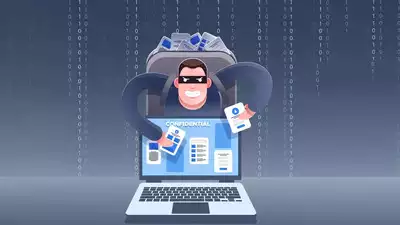How is Scam Affecting the Internet

Scams are having a profound and growing impact on the internet, affecting individuals, businesses, and the overall online ecosystem in various ways. Here’s how scams are impacting the internet:
1. Erosion of Trust
When scams and fraudulent activities become more common, users start to question the legitimacy of online platforms, services, and even individuals they interact with on the internet. This results in a general sense of distrust about the safety of online transactions, communications, and interactions.
- Users’ Confidence: Scams, such as phishing, fake reviews, and fraudulent e-commerce sites, are undermining users’ trust in the internet. As people fall victim to these scams, they become more cautious about sharing personal information or making online purchases, which can slow down the adoption of new digital services and platforms.
- Business Reputation: Legitimate businesses are also impacted, as scammers often impersonate trusted brands, leading to a loss of consumer confidence in legitimate companies. For example, people may avoid online shopping altogether if they fear they’ll be tricked into buying counterfeit goods or giving away credit card details.
A scam website checker is an online tool or service that helps users determine whether a website is legitimate or potentially fraudulent. It helps protect individuals from falling victim to online scams, such as phishing, malware attacks, and fraudulent e-commerce sites, by analyzing various characteristics of a website and providing a safety rating.
2. Financial Losses
Financial losses from scams are one of the most significant and damaging effects of online fraud. Scams can lead to the direct theft of money, assets, or personal information, causing both immediate financial harm and long-term repercussions for victims. These losses can affect individuals, businesses, and even entire economies
- Individuals: Scammers use various techniques, including phishing emails, fake websites, and social engineering, to steal money from individuals. These scams can range from small sums (e.g., fake lotteries or “prizes”) to large-scale financial fraud (e.g., investment scams or cryptocurrency theft).
- Businesses: Scams also affect businesses directly. Cyberattacks such as ransomware, where scammers demand payment to unlock access to important business data, are increasingly common. These attacks can cause significant financial damage, lost productivity, and reputational harm.
Preventing scams requires a combination of awareness, vigilance, and the use of protective tools, as well as a collective effort from governments, businesses, and individuals to fight against online fraud.
3. Impact on the Digital Economy
Scams are having a significant and detrimental impact on the digital economy, affecting everything from consumer confidence and business operations to the development of new technologies and digital markets.
- E-Commerce and Online Payments: Scams that involve fake e-commerce websites, fraudulent payment gateways, and “too-good-to-be-true” offers can harm the entire e-commerce sector. As more shoppers become wary of online purchases due to scams, e-commerce businesses may face declining sales.
- Cryptocurrency Scams: As cryptocurrency markets grow, they have also attracted scam artists. These include Ponzi schemes, fake ICOs (Initial Coin Offerings), and pump-and-dump schemes. These scams can lead to market manipulation and financial instability within the crypto sector.
As scams continue to evolve, it is crucial for businesses, consumers, and governments to work together to implement better fraud prevention, cybersecurity measures, and education to protect the integrity and growth of the digital economy.
In Summary:
Scams on the internet are not just a nuisance but a serious problem that affects every part of the online ecosystem—from individual users to large organizations. The economic, psychological, and security costs of scams are enormous, leading to a loss of trust, financial damage, and increased vulnerability to cybercrime. Addressing scams requires a combination of better cybersecurity practices, consumer education, regulatory action, and continued technological innovation to stay ahead of scammers.





